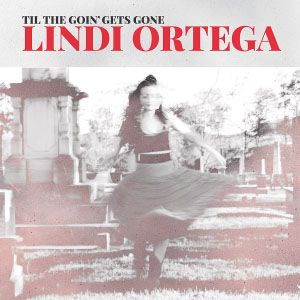Rating: 9/10
Eleven miles west of Dodge City, Kansas, on West Highway 50, otherwise in the middle of nowhere, there is a boardwalk and a historical marker to denote the place where over a century ago, wagons passed through on the Santa Fe Trail. If you stand there on that boardwalk in that relentless prairie wind and look out over the land, you can still see the ruts these wagons drove into the ground as countless people made their way to Santa Fe, and though so much time has passed, their stories are still etched into the prairie and echoing out of the past. Though you stand there in the 21st century, a piece of 1872 is still with you in those ruts, and there’s something about that that’s powerful and timeless.
It’s that same sort of feeling you get when you press play on this record, and Colter Wall starts to sing, with often little else but his guitar and some well-placed steel or drums to accompany a voice reminiscent of Johnny Cash and stories that seem to come pouring out of another place and time. From the opening words to “Thirteen silver dollars,” where we are invited in with, “It was a cold and cruel evening, sneaking up on speedy Creek, I found myself sleepin’ in the snow,” it’s an album of rambling and searching, more story than song, more folk than country, and more past than present. That remarkable voice will draw you in and remind you of earlier days in country, but it takes more than that to sell stories like these, especially in these modern days. It’s the conviction and emotion in these words that keeps you listening and makes it more than just a singer with a great, throwback voice, and rather a storyteller taking you on a journey. This particular journey includes hopping trains and sleeping in lonely motel rooms, and culminates in prison–and that’s just the front half. This half of the record ends in fine fashion with “Kate McCannon,” as Colter Wall sings from his prison cell about meeting “the prettiest girl in the whole damn holler” and then subsequently “courting” her and murdering her after finding her with someone else. This song builds and builds until the climactic line, “I put three rounds into Kate McCannon,” and you can feel all the pain and guilt of the song and whole first half of the album in that line.
I separate the album into halves because that’s exactly how Colter Wall presents it, and between the halves, there’s another slice of the past, as a DJ on the “Old Soul Radio show” is supposedly debuting Colter’s album, complete with static and background noise before he “flips the record over.” I can see how people would love or hate this moment, but it does serve to add another vintage element to the album, and it also breaks the record nicely into two parts, providing a break after the intensity of “Kate McCannon.”
The back half of the album is just slightly weaker, at least for me, as I’m still not really getting into the song “You Look To Yours.” If there’s any filler on this record, it would be this song. Here we have two nice covers, Townes Van Zandt’s “Snake Mountain Blues,” which serves nicely as the opener to the second half, as well as the excellent “Fraulein,”–originally done by Bobby Helms, but also previously performed by Townes–featuring Tyler Childers. These two are excellent together; Childers adds some high harmony and some great contrast to Wall’s bass, and they should sing together more. Townes Van Zandt is a fitting artist for Colter Wall to cover on this album because his songs work well with the images and stories portrayed here. Some of the best songwriting on the record can be found on “Transcendent Ramblin’ Railroad Blues” and “Bald Butte.” The former is more of, well, exactly what the title says, but this one stands out for its lines like, “If I don’t leave here tomorrow, I believe I’ll blow out my brains. But either way, there’ll be sorrow, you won’t be seeing me again.” The latter is a story straight out of the past, as we are told the tale of Henry, who had his horse and rifle stolen by some Southerners and sought revenge, only to be shot. The details and imagery in this one are impressive.
I mentioned before that there’s not much to accompany Colter Wall here usually except his guitar. Sometimes there’s some steel and sometimes some drums, which certainly do a lot for “Bald Butte.” For people that knew Colter wall before this and enjoyed his debut EP, Imaginary Appalachia, this could be a good or bad thing–that EP had much more interesting instrumentation and production, often with lively fiddles. I think some of that could have helped this record in places, and having Dave Cobb as the producer is certainly to blame for this. Having said that, personally, for this particular record, I think Dave Cobb handled it excellently, getting out of the way of Colter wall and his stories and letting them speak for themselves. I do think that going forward, Colter will have to expand his sound–we saw with Stapleton’s record that it wasn’t as interesting production wise as Traveller. But as far as this record goes, I don’t have any major complaints with the production. And for me, it’s actually quite an improvement from Imaginary Appalachia for Colter Wall himself, as on that EP, I felt he was singing too often in higher registers; this record shows off much of his lower range which suits his voice, as well as these songs. I would say that while he may be still developing his sound and style, he’s also come quite a long way in that aspect on this album. So I agree the concerns of production are valid, but something we should hold off on for the 21-year-old Wall until his next project.
There’s also the concern that by singing in this throwback, sometimes dated style that Colter Wall could develop into a niche performer, and that’s also something I’d argue it’s too early to speculate about. If it turns out to be the case, I’m proud to be one of the throwback types that enjoys this music. if not, I think there’s a conviction and heart in Colter that, combined with that kind of voice, can impact people on a much larger scale. I see a tremendous amount of potential in this 21-year-old Canadian folk singer, and only time will tell if he lives up to that potential. For now, this is a pretty incredible album, and rather than speculating on Colter’s future, we should all just go listen to it.


